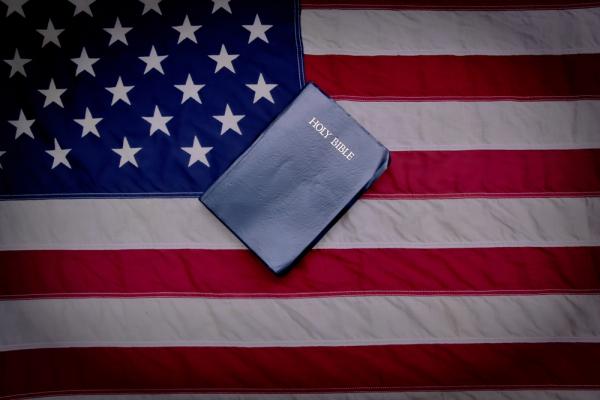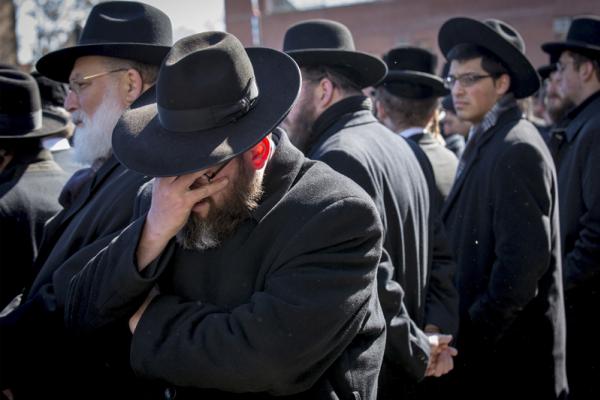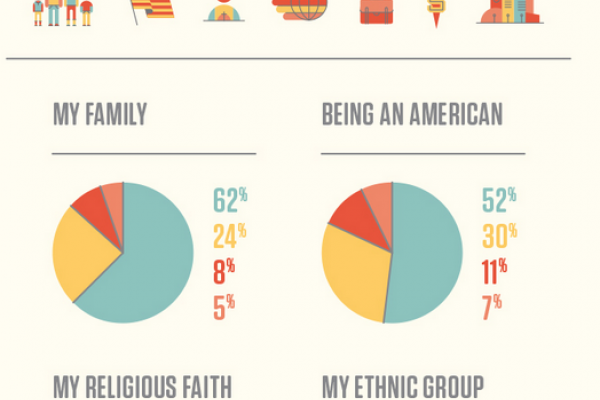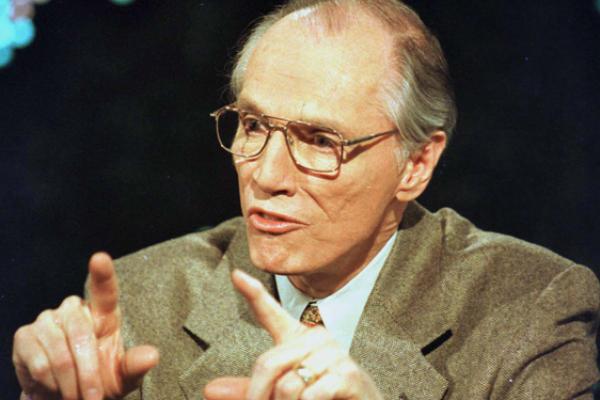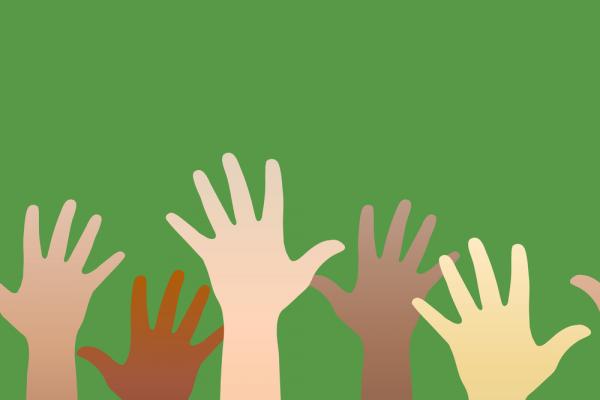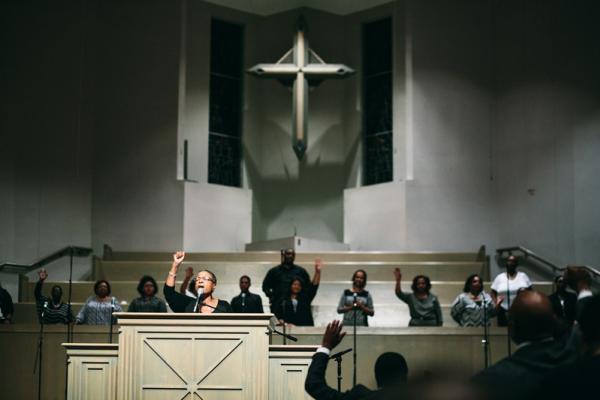Schools run by a conservative Christian sect called the Exclusive Brethren are under investigation following claims by former teachers that they were required to use science textbooks with pages ripped out, prevent boys and girls from talking to one another outside classrooms, and tolerate bullying, racism, and homophobia.
Life at Britain’s 34 Brethren schools is under the microscope following a decision last year to grant them charity status, which allows the group to avoid taxes estimated to be worth millions of pounds every year.
The Exclusive Brethren includes about 17,000 members across England.
After their first bid for charitable status was rejected, the sect fought back with supporters writing thousands of letters to the Charity Commission, which regulates charities in England and Wales.
The sect’s leader is an Australian named Bruce Hales (followers call him “the Prophet”).
Over 200 members of Parliament supported the Brethren’s charity status. But new disclosures have changed the public image of the group.
Eight former teachers have spoken to the media and described school buses segregated by gender, classroom racism, and textbooks with pages on evolution, fossil fuels, and sexual reproduction ripped out.
Ted Cruz became the first major candidate to declare a presidential run for 2016. His formal announcement came yesterday at Liberty University, the largest Christian university in the world.
Cruz’s announcement at Liberty University was an important political strategy. Cruz is the poster child of the Tea Party movement. He wants to spread his influence by appealing to evangelicals. There is no better place to garner the evangelical vote than the largest Christian university on the planet.
Chris Cillizza of the Washington Post says that Cruz’s message at Liberty was essentially this, “I am one of you; I will put my religious faith at the center of this campaign.”
Cruz put his religious faith at the center of his campaign by invoking God and American exceptionalism, while at the same time critiquing Democrats and Obamacare. Liberty students cheered as Cruz passionately claimed, “God bless Liberty University ... God’s blessing has been on America from the very beginning of this nation, and I believe God isn’t done with America yet. I believe in you. I believe in the power of millions of courageous conservatives rising up to re-ignite the promise of America.”
Cruz is the first serious candidate to officially throw his hat in the presidential ring. Because he quickly invoked God, it’s a safe bet that future Republican and Democratic candidates will also invoke the blessings of God the Almighty.
So, let’s talk God and politics.
The movement to give every American an equal say in the government decisions that affect our lives gained a “great new ally with a worldwide voice” last week. I’m referring of course to Pope Francis, who when speaking to an Argentine magazine said, "We must achieve a free sort of election campaign, not financed. Because many interests come into play in financing of an election campaign and then they ask you to pay back."
The Pope is a welcome addition to the growing national movement in the United States that aims to refocus government on fulfilling the needs and concerns of everyday voters, not on granting special favors to big campaign donors. In his first two years since inauguration, Pope Francis has dedicated his papacy to addressing the staggering economic inequality tearing lives apart here in the U.S. and around the world.
His statement on how we finance elections is not a deviation from that mission. It is an acknowledgement that a functioning democracy and economic fairness are two sides of the same coin. For years political leaders have perpetuated a vicious cycle of economic inequality begetting political inequality, and vice versa. The policy levers we pull must reverse this system to create a virtuous cycle of greater economic prosperity and freedom begetting greater political equality.
Pope Francis understands this, and so too do a growing number of religious communities organizing to tackle the problem of money in elections. The Franciscan Action Network, the organization that I direct, leads a coalition of 18 national faith organizations urging the U.S. Congress and President to take steps to reduce the corrupting influence of money in elections. Methodists, Presbyterians, United Church of Christ, Muslims, Quakers, Mennonites, Disciples, and several Catholic organizations and religious orders have joined with others to call out their shared teachings about integrity and honesty, and their belief that a democratic country should actually adhere to democratic practices.
A variety of faith traditions have joined in our call for a constitutional amendment to curtail the role of money in politics. In the sacred texts and writing representing each of our spiritual traditions we find stories warning us about the evils of worshiping money.
In the Jewish tradition, the Talmud states, “A mitzvah is better done personally than done via agent.”
In the Christian tradition, the Gospel of Mathew tells us, “You cannot serve both God and money.”
These warnings are found throughout all faith traditions.
We applaud the Pope’s efforts in this struggle and encourage him to amplify his call for a more representative system for funding elections when he addresses Congress in September. After all, the American system is a prime example for the world of how not to fund elections. The rise of super PACs and outside political groups have given the billionaire class ever more power to bankroll the election campaigns of our elected leaders.
The bodies of seven children from an Orthodox Jewish family who died in a fire in their home in Brooklyn have arrived in Israel for burial, Israeli network Arutz Sheva, and The Associated Press reported March 23.
Funeral services for the four boys and three girls of the Sassoon family, ages 5 to 16, were held in Brooklyn on March 22, before their bodies were flown to Israel.
The family lived in Jerusalem, where the children are to be buried, before moving to the Midwood neighborhood of Brooklyn two years ago. A friend said the family had planned to return to Israel to live.
Authorities identified the victims as girls Eliane, 16; Rivkah, 11; and Sara, 6; and boys David, 12; Yeshua, 10; Moshe, 8; and Yaakob, 5. All were found in upstairs bedrooms of the two-story, brick-and-wood, single-family home after the blaze — the city’s deadliest fire since 2007 — was reported early March 21.
Their 45-year-old mother, Gayle, a Brooklyn native, and 14-year-old sister, Tzipara, who jumped from a second-story window, remained in critical condition.
“God, family and country” might make for a good country music tune, but that’s not really how most Americans see the strongest influences on their personal identity.
The real order is family first (62 percent), followed by “being an American” (52 percent). “Religious faith” lolls way down in third place (38 percent) — if it’s mentioned at all, according to a survey released March 19 by The Barna Group.
The California-based Christian research company found another 18 percent of those surveyed said faith had a little to do with idea of who they are, and nearly 20 percent scored it at zero influence.
Christians were the largest self-identified group in the survey and Barna looked at them two ways. “Practicing” Christians — defined in the survey as self-identified Catholics, Protestants and Mormons who say they have attended church at least once in the last month and/or say religion is important to them — scored faith first, at a rate more than double the national average.
The former president of Bob Jones University, one of the nation’s bastions of Christian fundamentalism, has apologized for comments he made in 1980 that gays and lesbians should be stoned to death.
Jones, who stepped down as BJU president in 2005, made the original remarks while visiting Jimmy Carter’s White House, delivering a petition with 70,000 signatures opposing greater legal protections for gays and lesbians.
“I’m sure this will be greatly misquoted,” Jones said at the time.
“But it would not be a bad idea to bring the swift justice today that was brought in Israel’s day against murder and rape and homosexuality. I guarantee it would solve the problem post-haste if homosexuals were stoned, if murderers were immediately killed as the Bible commands.”
In a statement issued by the university on March 21, Jones called his earlier comments “inflammatory” and “reckless.”
“Upon now reading these long-forgotten words, they seem to me as words belonging to a total stranger — were my name not attached,” he wrote.
“I cannot erase them, but wish I could, because they do not represent the belief of my heart or the content of my preaching. Neither before, nor since, that event in 1980 have I ever advocated the stoning of sinners.”
In the last several days, our country has witnessed and experienced, yet again, the effects of the unresolved issues of racism. We cannot rest complacent, convincing ourselves that everything is and will be all right on its own. That is a lie. The racial divide in the United States is boiling — we see the big cloud that rises over the roaring mountain. If we don’t act, the volcano will eventually explode. Our all-gracious God is calling us to turn from our wrong path.
Above other civic institutions, the church is responsible to do the work of healing. Our nation is desperately in need of healing. The sins of racism, classism, violence, and ideological intransigency are violently shaking and destroying the soul of our nation.
Where are the godly leaders in our country who are ready and willing to strip their souls of religious and ideological allegiances and surrender without fear, to seek the path that the Holy Spirit is eager to show us?
There is a way forward. We know that Jesus the Christ came to show us that way. We need to quit insisting that the way forward is my way. It is not my way — it is Christ’s way. No one Christian leader can claim to speak for God. Neither does God need any one of us to make the way clear — God can speak for God’s self.
There is one condition necessary for us to hear God’s voice: “If my people who are called by my name humble themselves, and pray and seek my face and turn from their wicked ways, then I will hear from heaven and will forgive their sin and heal their land.” (2 Chronicles 7:14.)
Someone once said that change happens by listening and then starting a dialogue with the people who are doing something you don't believe is right. There is no virtue in sticking to our allegiances. Our allegiances should not be to the right or the left or even the center. If we follow Jesus, our allegiances are to repentance, forgiveness, and reconciliation. Our life and our only hope are found in the Gospel of Jesus Christ.
Thomas Merton wrote, “You do not need to know precisely what is happening, or exactly where it is all going. What you need is to recognize the possibilities and challenges offered by the present moment, and to embrace them with courage, faith, and hope.”
The truth is that we do know what is happening, and we know what is going on. Our individual and collective sins are robbing us of our dignity. We, the Christian leaders of this country, can choose to wage war with the weapons of our ideological, denominational, and theological perspectives and convictions. Or we can choose to “recognize the possibilities and challenges offered by the present moment, and to embrace them with courage, faith, and hope.”
I was six by the time my new daddy showed up. He was quiet yet strong and kind. I could tell by the way he always spoke to mama, his voice tempered, the way he looked at her. For the nearly 40 years that they were together until my mother passed away, I can’t recall a time I ever saw my stepfather raise his voice to her, let alone hurt her. In fact, I don’t know too many men that would accept an abused woman with five small children and raise them as his own. He cherished my mother, in ways that I suspect my biological father, tried so desperately to do.
They were two men. Each woven in his own love and laud for my mother. One cloaked in his pain; the other in his kindness and kinship. But despite their differences, they were both my father, and we still have an equal and equitable obligation to dignify them the same.
That is why when I founded Saving Promise—a national domestic violence prevention organization inspired by my daughter’s little girl named Promise—there were three things that I was clear about: 1) we must focus on greater public awareness and prevention; 2) we must mobilize the community to take action; and 3) we must engage and invite men to be a part of this movement. Men who need help and men that want to help.
This month marks Women’s History Month, a time when we lift up and honor women around the world, especially those whose journeys have paved the way for the next generation. Through my journey of building Saving Promise there is one thing that I have come to understand: if we continue to address intimate partner violence as a women’s issue and not invite men to be a part of this dialogue, we will no sooner prevent this global public health crisis. Therefore, I personally believe we must reflect not only on the paths that we’ve paved for women, but those that we carry in the deepest corners of our hearts—our communities, our families, our children, and our men.
Should Christians like horror movies?
It’s a question that many a Christ-following cinema junkie has had to ask themselves. It’s hard not to feel a bit conflicted enjoying a zombie apocalypse or a masked maniac when peace and tolerance are core parts of your belief system. If we’re going to be discerning consumers of culture, what value is there in horror?
I could pose one of a dozen different possible answers, each with their own set of arguments — for example, how the collective act of yelling in the dark at a dumb teen NOT TO GO IN THE CABIN transcends race, politics, and gender. Or how horror can help us embrace the inherently supernatural elements of faith. Or how it does the important job of reminding us that evil exists in the world, and can take on any number of forms.
But the argument that truly separates the wheat from the tares is that great horror, going all the way back to its roots in gothic literature, offers some of the best social commentary there is. Truly iconic horror films (and horror stories, for that matter) allow us to go below the surface of your basic spine-chiller, and think about everything from racism to gender politics to the afterlife.
Horror is at its best when it gives you something to think about along with your creeps. The new film It Follows, out this weekend, fits that bill quite well. It also happens to be one of the scariest movies this year.
The plot feels like classic urban legend. Teenager Jay (Maika Monroe) is dating the slightly older Hugh (Jake Weary), and decides one night to go all the way with him. Once it’s over, however, Hugh informs Jay that he’s cursed by a demon, a demon he’s now passed on to her. The demon will follow Jay, slowly and consistently, until it catches up with her and kills her, unless she first passes it on to someone else through sexual contact. If the demon kills her, it will then return to stalk and kill Hugh. Only Jay can see the demon, and it can look like anyone, be it a stranger, friend, or beloved family member.
This premise could easily be turned into something silly and gratuitous, and were it a studio venture instead of a smaller independent film, It Follows might have been just that. But although writer-director David Robert Mitchell has made a movie in which sex plays a pivotal role, he’s more interested in the consequences of it than the act itself. It Follows is packed with symbolism that represents loss of innocence, the onset of adulthood, and reminders of mortality — the ever-approaching darkness that none of us escape. Grim, yes, but also pretty impressive in a genre more commonly associated with objectification and cheap thrills.
By her own count, Bishop Yvette Flunder has officiated at 149 funerals for victims of AIDS and HIV. Her office in Oakland, Calif., contains the ashes from some of those funerals after family members refused to claim them.
In recent weeks, she’s been celebrated and castigated for being an African-American bishop who’s legally married to another woman.
But when the time came for her to speak at a small Baptist college in this Bible Belt city, she chose to forgive the black clergymen who called her appearance a “travesty of the highest order.”
“I’m not using my energy for useless fights,” the third-generation preacher said at the end of a rousing sermon on March 17.
“I’m using my energy to find peace. Let there be peace on earth.”

